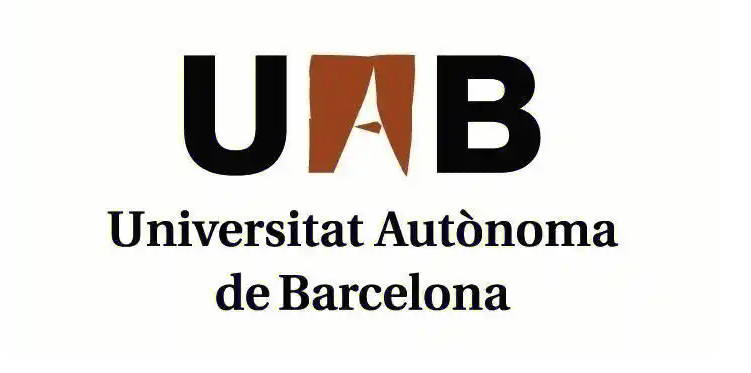西班牙巴塞罗那自治大学社会学系人口研究中心博士后
西班牙巴塞罗那自治大学社会学系人口研究中心博士后

巴塞罗那自治大学(加泰罗尼亚文:Universitat Autònoma de Barcelona),简称巴自治(UAB),始建于1968年,是西班牙的一所研究型大学,位于西班牙加泰罗尼亚自治区首府巴塞罗那。
Postdoctoral Researcher in Adolescent Well-Being, Social Inequalities, Digital Media and Computational Methods
Universitat Autònoma de Barcelona - Department of Sociology, Centre for Demographic Studies (CED)
Location: Barcelona - Spain
Salary: From €42,396 or £36,875.87 (converted salary*) gross annual
Hours: Full Time
Contract Type: Fixed-Term/Contract
Placed On: 12th November 2024
Closes: 3rd December 2024
The Centre for Demographic Studies (CED) and Department of Sociology from Autonomous University of Barcelona (UAB) are looking for an outstanding social scientist to fill in a 3-year postdoctoral position funded by the ERC Consolidator Grant project DIGINEQ – “Digital Time Use, Adolescent Well-Being, and Social Inequalities” (PI: Prof. Pablo Gracia).
In DIGINEQ, you will conduct pioneering research on how adolescent digital use influences well-being outcomes (i.e., mental health and academic outcomes) across demographic and socioeconomic groups. You will lead cutting-edge, interdisciplinary, multi-method research with the PI, other postdocs and PhDs by (1) analysing rich mobile-app data with advanced longitudinal computational tracking techniques to study inequalities in adolescents’ digital use and well-being, and (2) examining data from RCT digital interventions with schools, families and adolescents to promote adolescent healthy digital engagement and well-being, using computational and mixed-method designs.
You will join a leading research team in social sciences, and an excellent hub of population research (CED) and applied social science research (Sociology UAB). You will integrate into a vibrant international network of top interdisciplinary collaborators and partners on areas like youth well-being and mental health, inequalities and social stratification, population and demography, digital media, computational methods, digital social sciences, social psychology and education.
You will get a competitive salary, starting at €42,396 gross annual payment (~ €2,600 net monthly salary) and generous travel, conference, and training support (€3,000 every year).
Person Specification
Essential:
PhD completed or close to completion in a relevant discipline for this position (e.g., sociology, population sciences, psychology, computational social sciences, media and communication, computer science, economics, education).
PhD degree must be completed, or thesis officially submitted, when you start the position.
Excellent scientific/publication record according to level of career experience.
Substantive expertise in at least one of these areas: adolescent well-being; inequalities and stratification; digital media; computational sciences; family research; RCT interventions.
Excellent methodological skills in at least one of these: (i) advanced statistical modelling, (ii) computational methodologies (e.g., big-data, AI, mobile-app data tracking); (iii) mixed-method designs (e.g., combining survey data with focus groups and qualitative interviews).
Experience in working with complex data, ideally statistical/computational data.
Proficiency, or interest, in relevant statistical software (e.g., R, Stata, Python).
Interest in designing digital interventions and RCT school-based interventions.
Willingness to keep learning and innovating using pioneering methods.
Excellent written and verbal communication skills in English.
Ambition and proven ability to produce high-quality research and publications.
Ability to work effectively with high levels of independence.
Proactive attitude and ability to work as part of a team.
Desirable:
Experience in leading primary data collection (e.g., with families, youth, schools).
Leadership skills to work with PhD researchers and RAs.
Interest and willingness to pursue future projects/grants in the field.
Experience or interest in narrative qualitative data with relevant software (e.g., Nvivo).
Some knowledge of Spanish or Catalan or interest in learning basic Spanish or Catalan during your post.
Application Procedure
See the official call via the 'Apply' button.
Applicants must send the following documents (in PDF) by email to digineq@ced.uab.es adding pgracia@ced.uab.es as cc, writing “Postdoc DIGINEQ” in the subject line:
Motivation letter (2 pages max).
CV in English (free format).
Two research samples written in English (e.g., scientific papers).
Contact details of 2 referees.
Copy of ID/Passport.
Copy of degree certificates.
准备申请国外博士后的各位老师注意了!知识人网(www.zsrw.cn)小编每周定时更新最新的国内外博士后招聘信息以及访问学者、博士后资讯,感谢大家的关注!

















